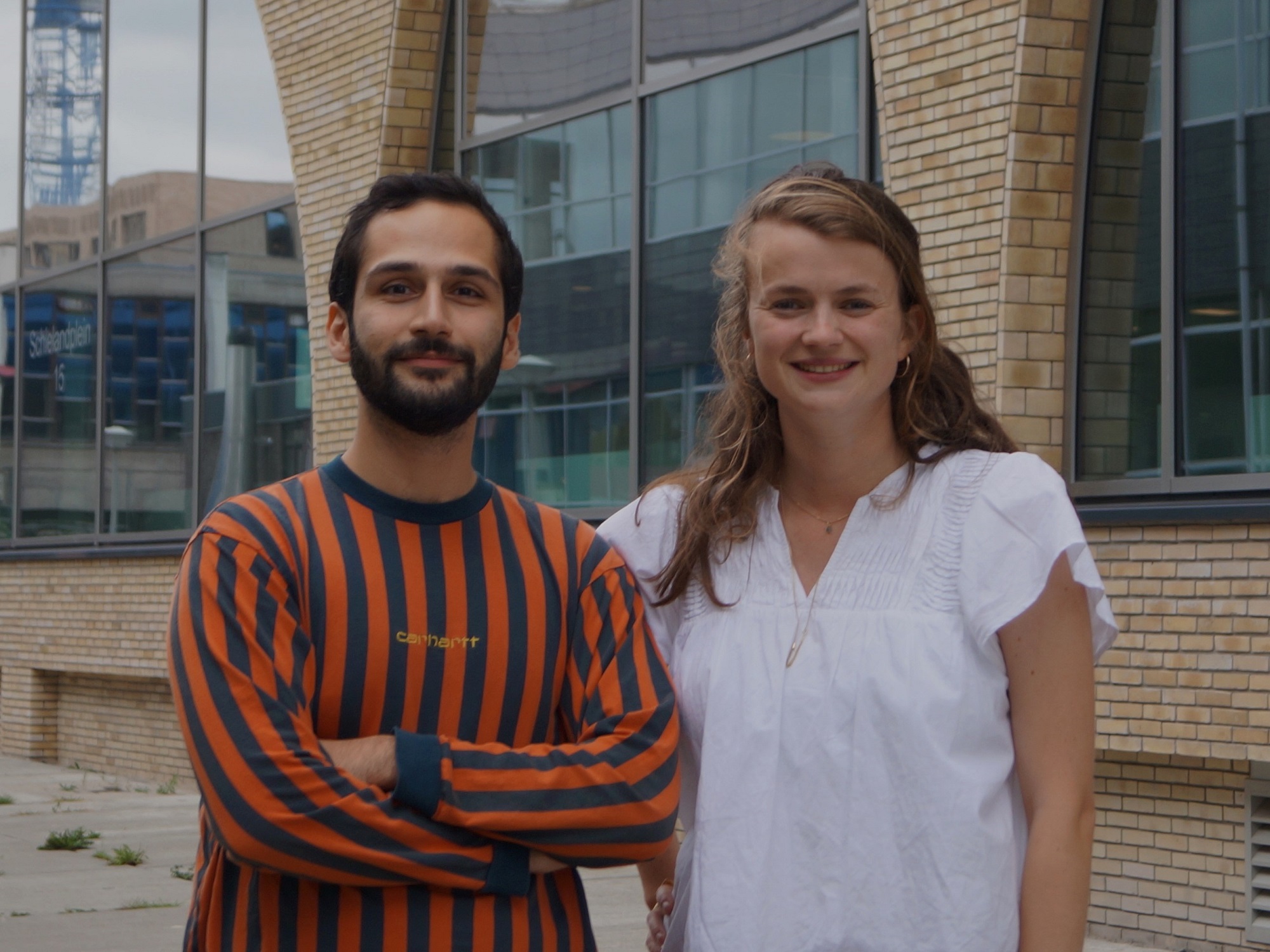Who are the people who study or work at TU Delft? We meet them in Humans of TU Delft. Arian and Maria are helping to find innovative solutions to societal challenges.
Arian Joyandeh (left) and Maria Montijn. (Photo: Karel van der Wel)
English only
Maria: “The National ThinkTank Foundation (De Nationale DenkTank) is a group of 20 students or recent graduates that come together to find innovative solutions to societal challenges. It’s an independent organisation that aims to bring together science, business and society, and every year they select a new societal problem to tackle. Last year it was biodiversity and two years ago it was equal opportunities in education. This year’s theme is meaningful aging – how we can prepare ourselves and our society for the coming phase of aging. Something I really like about the think tank is that you are part of a heterogeneous group. For example, now we are working with people who have backgrounds in anthropology or politics. You can really learn a lot from their different way of thinking and their new perspectives.”
Arian: “One of the reasons I wanted to do the think tank is because as a computer science guy I like to build stuff, but I always build stuff which people don’t necessarily want. So it’s like a solution for which there’s no problem. And now we have this problem of an aging society. What are the opportunities and challenges and how can we really find solutions for them? The project lasts about four months. For the first one and a half months we are busy talking with experts and listening to what they see as the key problems. The group of 20 is subdivided into four smaller groups. One group is focused on preparing for becoming older, the group that I’m in is focused on ways that people can find purpose in their later years. Another group is looking at the job market and what challenges come with that as people age.”
Maria: “The fourth one, my group, is working on the living environment, things like your house, the neighbourhood, and the community around it. These are all aspects which are not at all related to our line of studies. There are also partners of the programme who provide coaching and facilitation during the project.”
Arian: “Once we have an analysis from the first phase, from October onwards we will be testing things out and trying solutions. Those solutions could be launching new businesses, but could also be things like campaigns to make people more aware of something. For example, it is important for people to be aware of timely planning and preparing for your old age. There could also be proposals for new policies or for policy changes.”
‘I would encourage TU Delft students to apply for this opportunity’
Maria: “As I mentioned before, what really attracted me to this project is the chance to work together with people from different backgrounds. But secondly, I also was driven by this year’s theme. I thought about how this is a growing crisis which we don’t know much about. We, as the younger generation, are now thinking about how our society should adapt with the older generation, and I decided this is something I want to be part of. I would encourage TU Delft students to apply for this opportunity. You can really put your analytical skills into practice and meanwhile learn so much more. You have the opportunity to go into the field and talk with people, get new perspectives, learn how to do interviews, and how to communicate your story.”
Arian: “For me personally, when I was doing my master’s thesis in both computer science and applied mathematics, I loved it but I really missed a societal aspect. So I started reading up about all kinds of things which I thought were interesting, things related to the big problems we face in society. I started thinking maybe I should dive a bit deeper into this and see how it works. I see it a lot in my group of friends and also as a broader trend in the last couple of years that people are thinking about how to make an impact in the world. I want to look more at finding problems and then looking at how we can make a solution that people actually want. So what I hope to get out of it, is to really get into problem solving instead of solution fitting.”
- More information on the website National ThinkTank Foundation
Want to be featured in Humans of TU Delft? Or do you know someone with a good story to tell? Send us an e-mail at humansoftudelft@gmail.com
Heather Montague / Freelance writer



Comments are closed.